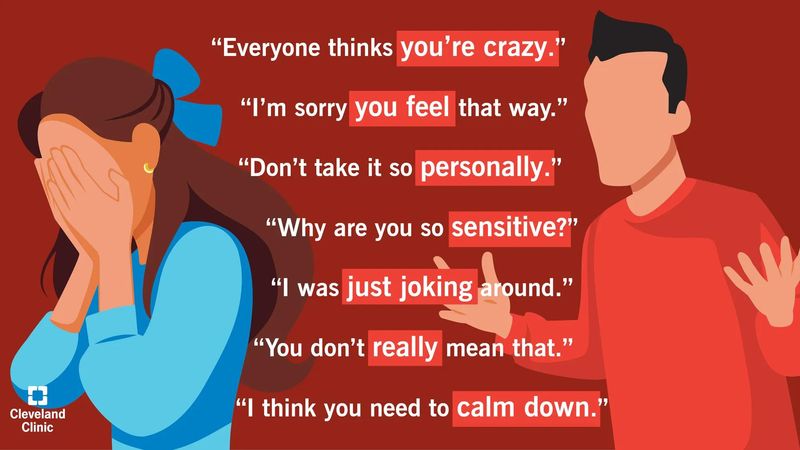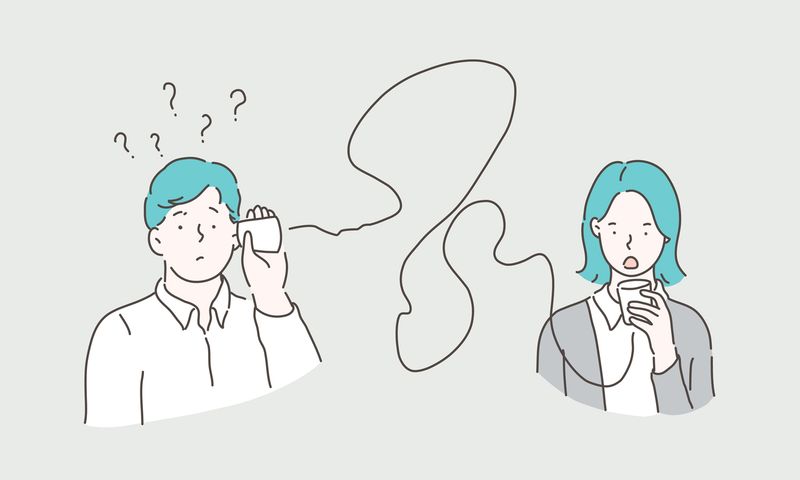I’ve Been A Couples Therapist For 30 Years: Any Of These 18 Phrases Is A Red Flag In Relationships
Language in relationships often reveals patterns and underlying issues that can’t be ignored. Some phrases, although seemingly harmless, can signal deeper problems.
Here are 18 common phrases that might sound normal but are actually red flags in relationships.
1. “You’re too sensitive.”

Imagine sitting with your partner on a quiet evening, only to hear, “You’re too sensitive.” This phrase can cut deep, shutting down vulnerability and placing the blame squarely on emotion. It’s not just dismissive; it’s a way to invalidate feelings, making one partner question their own experiences. Often, it’s said casually, without realizing the damage.
But consider what it signals: a lack of empathy and an unwillingness to engage with emotional depth. Relationships thrive on understanding and support, and when one person is told they’re too sensitive, it implies their emotions are a burden.
A healthier approach might involve asking questions to understand the emotions rather than dismissing them. Encouraging open communication can be the bridge to deeper connection.
2. “It’s not a big deal—get over it.”

Phrases like “It’s not a big deal—get over it” might roll off the tongue with ease, but they pack a punch. This dismissal isn’t just about brushing off an issue; it’s emotional invalidation. When repeated, it conveys that one partner’s feelings aren’t important.
Tension can arise, making everyday interactions fraught with unspoken resentment. Emotional disconnection can quickly follow, leaving one partner feeling unsupported and unheard. It shuts down dialogue and leaves wounds that can fester.
Instead, a nurturing conversation that acknowledges concerns and seeks solutions fosters a more supportive relationship. Being heard is a fundamental need, and a shift towards empathy can transform the dynamic, opening pathways for mutual understanding.
3. “I guess I’m always the bad guy.”

“I guess I’m always the bad guy.” Ever heard this in the heat of an argument? It’s a classic manipulation tactic, cloaked in martyrdom. Rather than addressing the issue, this phrase redirects the focus, making one partner feel guilty for expressing concerns.
It creates a cycle where genuine grievances are overshadowed by the need to console. The real issues remain unaddressed and the relationship’s balance skews toward manipulation. In time, resentment builds, eroding trust and intimacy.
Breaking this cycle requires honest dialogue and a willingness to face uncomfortable truths. Partners should aim to discuss feelings without resorting to blame. Encouraging a shared responsibility approach can pave the way for healthier interaction.
4. “I said I was sorry, what more do you want?”

Apologies can mend bridges, but “I said I was sorry, what more do you want?” can burn them. This phrase often comes from a place of frustration, signaling that saying sorry was a checkbox rather than a commitment to change.
It suggests that the apologizer feels their duty is done, leaving the onus on the other person to move on. But apologies without action lack sincerity, and relationships cannot thrive on empty words.
Repairing the harm requires more than a simple sorry; it requires empathy and effort to change behaviors. A genuine apology involves understanding the impact and making amends. It’s about nurturing growth and rebuilding trust, piece by piece.
5. “You’re imagining things.”

The phrase “You’re imagining things” is a cornerstone of gaslighting, even if inadvertently used. It sows seeds of doubt about one’s perception, creating an atmosphere where reality feels unstable. For the person hearing it, questioning their sanity becomes a distressing norm.
This tactic, whether intentional or not, undermines trust not only in the relationship but also within oneself. It’s a significant red flag indicating a power imbalance and a lack of respect.
To foster a healthier relationship, recognizing each other’s experiences and validating feelings is crucial. Building an environment where both partners feel secure in their perceptions is foundational for mutual trust and respect.
6. “This is just how I am.”

“This is just how I am” is a phrase that draws the line in the sand. It’s a refusal to change, cloaked in self-acceptance. While embracing one’s true self is essential, using it as a shield against growth and compromise can be detrimental.
It often signals a halt in personal development, where defensiveness replaces dialogue. Relationships thrive on evolution, and when one partner refuses to adapt, stagnation sets in.
True partnership involves flexibility and a willingness to grow together. Open discussions about personal growth and understanding each other’s perspectives can foster an environment where change is seen as positive rather than threatening.
7. “You should be grateful I put up with you.”

“You should be grateful I put up with you” isn’t just a red flag; it’s an emotional landmine. This phrase drips with condescension and emotional blackmail, suggesting that love is a transaction rather than a mutual commitment.
It places one partner on a pedestal, creating an unhealthy power dynamic where gratitude is demanded, not earned. Over time, it erodes self-worth and the authenticity of the relationship.
Healthy relationships thrive on mutual respect and appreciation. Encouraging gratitude that is sincere and reciprocal can transform this dynamic, making both partners feel valued and cherished for who they are, not what they endure.
8. “You’re overreacting.”

Dismissal comes in many forms, and “You’re overreacting” is one of the subtlest yet most damaging. It implies that one partner’s emotions are overblown and unwarranted, belittling their experience.
This phrase not only invalidates feelings but also stifles open communication. Over time, it creates a divide, where the dismissed partner may feel isolated and hesitant to express themselves.
Building an environment where both partners feel heard and validated is essential. Encouraging each other to share their feelings without fear of being dismissed can strengthen emotional bonds and foster trust.
9. “Why can’t you be more like [name]?”
![“Why can’t you be more like [name]?”](https://herway.net/wp-content/uploads/2025/04/Youre-overreacting.jpg)
Comparison in relationships is a slippery slope, and “Why can’t you be more like [name]?” is its greased edge. This phrase doesn’t just sting—it cuts deep, fostering resentment and insecurity.
It suggests that one partner isn’t enough as they are, and that someone else is the gold standard. Over time, this comparison breeds competition rather than closeness, eroding trust and intimacy.
Focusing on each partner’s unique qualities and appreciating their individuality can shift the dynamic positively. It’s about celebrating each other’s strengths and growing together, rather than measuring against others.
10. “I don’t want to talk about this again.”

“I don’t want to talk about this again” can be the death knell for effective communication. It signals an unwillingness to engage, closing the door on dialogue and understanding.
Avoidance might seem like a simple solution to prevent conflict, but it breeds distance. Over time, unresolved issues pile up, creating a chasm between partners that arguments could never bridge.
Encouraging open, ongoing communication is key to resolving conflicts and building a resilient relationship. It’s about facing issues head-on, acknowledging feelings, and finding resolutions together, rather than sweeping them under the rug.
11. “You’re always making things worse.”

“You’re always making things worse” is blame masquerading as feedback. It shifts focus from the problem to the person, making it less about resolution and more about fault-finding.
This phrase can quickly escalate tensions, leading to a cycle of blame and defensiveness. It undermines trust and creates an environment where one partner feels perpetually at fault.
Cultivating a space where concerns are addressed without blame is essential. Focusing on solutions rather than assigning fault fosters collaboration and understanding, strengthening the relationship’s foundation.
12. “I’ll do it later, stop nagging.”

Procrastination is a common issue, but “I’ll do it later, stop nagging” adds a layer of deflection. It’s more than a delay; it’s an avoidance of responsibility that slowly erodes trust.
Repeated often, it can make one partner feel as though their requests and needs are unimportant. Over time, this can lead to frustration and a perceived imbalance in effort within the relationship.
Finding a balance involves both partners respecting each other’s needs and timelines. Open dialogues about responsibilities, coupled with genuine efforts to follow through, can mend this dynamic and restore trust.
13. “You’re lucky I haven’t left.”

“You’re lucky I haven’t left” is not just a statement—it’s a threat wrapped in a relationship. This phrase is wielded to instill fear rather than security, creating a precarious emotional climate.
It suggests that the relationship is hanging by a thread, placing one partner in a constant state of anxiety about being abandoned. Over time, this fear can erode self-esteem and trust.
A stable relationship is built on reassurance and commitment, not threats. Promoting open discussions about concerns and reinforcing commitment can foster a sense of security, paving the way for a healthier connection.
14. “That’s just in your head.”

“That’s just in your head” is a phrase that belittles rather than clarifies. It’s a form of cruel dismissal that undermines one’s perception and experiences.
This phrase suggests that a partner’s feelings are invalid, creating an environment where open dialogue is stifled. Over time, such invalidation can lead to feelings of isolation and insecurity.
For a relationship to thrive, each partner’s experiences and feelings must be acknowledged and validated. Encouraging open, honest discussions fosters mutual respect and understanding, creating a nurturing environment for both partners.
15. “Let it go already.”

Healing takes time, and “Let it go already” is a phrase that denies this process. It suggests that there’s a timeline for recovery, failing to recognize individual emotional needs.
This dismissive attitude can create a wedge between partners, where one feels pressured to move on before they’re ready. Over time, this pressure can lead to resentment and emotional withdrawal.
Acknowledging and respecting each other’s healing processes is vital for a supportive relationship. Providing space and understanding allows both partners to process emotions at their own pace, fostering a healthier, more empathetic connection.
16. “I didn’t mean it like that, you’re twisting my words.”

Words can twist and turn, and “I didn’t mean it like that, you’re twisting my words” is a phrase that deflects rather than clarifies. It shifts the focus from the impact to intention, leaving the other partner feeling misunderstood.
This deflection can prevent genuine resolution, as it avoids addressing the hurt caused. Over time, it can create a barrier where one partner feels consistently invalidated.
Clear communication that acknowledges both intent and impact is essential for resolving misunderstandings. Encouraging an open dialogue allows both partners to express their feelings and work together towards understanding and resolution.
17. “If you really loved me, you would…”

Love isn’t a bargaining chip, yet “If you really loved me, you would…” turns it into one. This phrase manipulates emotions, making love conditional rather than unconditional.
It creates a power dynamic where one partner feels they must prove their love through actions, leading to a cycle of manipulation and guilt. Over time, this can erode the authenticity and sincerity of the relationship.
True love thrives on mutual respect and understanding. Encouraging open communication about needs and feelings without attaching love as a condition can foster a healthier, more balanced relationship.
18. “Whatever. I’m done talking.”

“Whatever. I’m done talking” isn’t just a conversation ender—it’s a shutout from connection. This phrase signals stonewalling, a complete withdrawal from dialogue.
It creates a communication barrier, leaving the other partner feeling isolated and neglected. Over time, this tends to foster resentment, as the unresolved issues linger like a fog.
To build a resilient relationship, encouraging ongoing communication, even during disagreements, is essential. It’s about staying engaged, addressing issues with patience and empathy, and ensuring that both partners feel heard and valued.







